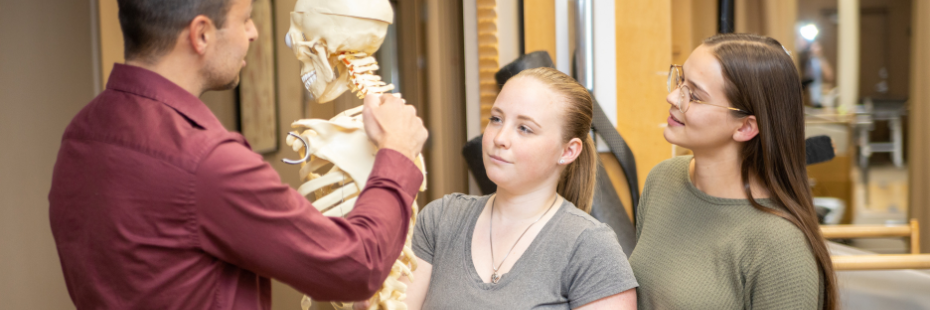Future jobs will require different skills, and workers must be prepared to meet the changing needs. We must teach students how to reflect on their experiences, define their learning goals, and independently manage their own learning. These outcomes require an education which combines experiential learning with abstract learning. - A Nation at Risk: Another View (1984). Journal of Experiential Education, 7(1), 6-8
Why experiential learning?
Experiential learning (EL) is not a new concept. As far back as 350 BC, Artistotle wrote, “For the things we have to learn before we can do them, we learn by doing them, e.g. men become builders by building and lyre players by playing the lyre; so too we become just by doing just acts, temperate by doing temperate acts, brave by doing brave acts.” 1
But, just “doing” something does not make it experiential or learning. Kolb’s learning cycle2, a model commonly used to describe experiential learning, emphasizes reflection and engaging in an iterative process to create learning.
The process demands students to be active participants in the learning. Consequently, students are more engaged in the learning process, and the deep learning develops the skills and attributes students will need to succeed after graduation by providing them the opportunity to apply the theory and knowledge they acquire in the classroom.
Numerous studies have demonstrated significant benefits to students, faculty, institutions and the community. Here is a collection of the most commonly cited benefits of experiential learning:
- Increases motivation and engagement, encouraging self-directed learning;
- Facilitates the exploration of the relationship between academic theory and practice, increasing clarity around academic and career goals;
- Increases understanding and perceptions around workplace cultures; Enhances professional networks;
- Helps students better understand work realities and expectations;
- Provides opportunity to gain career-related experiences, clarifying employment and career goals;
- Builds leadership, technical, and professional skills;
- Increases confidence, maturity, and self-management; Improves problem-solving, critical thinking, research, communication, and teamwork skills;
- Develops skills to transition to the workforce; In cases of paid placements, provides earnings to assist with financial obligations; and
- Builds citizenship skills.
- Attracts and retains high quality students;
- Strengthens links between the institution and the business, government and community organizations;
- Enhances reputation of the institution within the employment community;
- Aligns with government priorities;
- Increases employability of graduates, thereby increasing institutional employment rates;
- Increases alumni engagement as community partners;
- Increases partnership opportunities and financial support towards EL from community partners;
- Increases educator satisfaction;
- Helps faculty keep their knowledge current; and
- Provides opportunity to evaluate and improve curriculum.
- Increases the diversity, energy, and enthusiasm within the workplace;
- Engages postsecondary institutions in responding to identified community need;
- Fosters additional collaboration with the university;
- Increases the profile of the community’s opportunities and challenges;
- Provides a new perspective to the delivery of programs, services and products;
- Helps organizations find solutions to specific business or industry needs; and
- Attracts and hires motivated and enthusiastic new employees.
Recently, Ontario Premier’s Highly Skilled Workforce Expert Panel4 recommended that every student be guaranteed at least one EL opportunity during their post-secondary academic program. The University of Windsor has committed to providing students with experiential learning opportunities as part of its Strategic Mandate Agreement5.
Select Articles and Reports on the Benefits of Experiential Learning:
Wright, M. C. (January 01, 2000). Getting More Out of Less: The Benefits of Short-Term Experiential Learning in Undergraduate Sociology Courses. Teaching Sociology, 28, 116-126.
https://www.jstor.org/stable/1319259?seq=1#metadata_info_tab_contents
Specht, L. B., & Sandlin, P. K. (June 01, 1991). The Differential Effects of Experiential Learning Activities and Traditional Lecture Classes in Accounting. Simulation & Gaming, 22, 2, 196-210.
https://journals.sagepub.com/doi/abs/10.1177/1046878191222003
Council of Ontario Universities. (2014). Bringing Life to Learning at Ontario Universities.
http://cou.on.ca/wp-content/uploads/2015/05/COU-Experiential-Learning-Report-2014.pdf
RBC. (2018). Humans Wanted: How Canadian youth can thrive in the age of disruption. https://www.rbc.com/dms/enterprise/futurelaunch/_assets-custom/pdf/RBC-Future-Skills-Report-FINAL-Singles.pdf
1Aristotle. (350BC). Nicomachean Ethics. Translated by W. D. Ross, 1994. The Internet Classics Archive. Retrieved from http://classics.mit.edu/Aristotle/nicomachaen.2.ii.html
2Kolb, D.A. & Fry, R. E. (1975). Towards an Applied Theory of Experiential Learning. In C. Cooper (ed.), Theories of group processes. N.Y.: John Wiley & Sons.
3Houser, C. (2017, June 7) Study abroad experiences are not just for students. University Affairs. Retrieved from https://www.universityaffairs.ca/career-advice/career-advice-article/study-abroad-experiences-not-just-students/
4Ontario Premier’s Highly Skilled Workforce Expert Panel (2016). Building the Workforce of Tomorrow: A Shared Responsibility. Retrieved from https://files.ontario.ca/hsw_rev_engaoda_webfinal_july6.pdf
5University of Windsor, 2020-2025 Strategic Mandate Agreement Draft. (2020). https://www.uwindsor.ca/strategic-mandate-agreement/sites/uwindsor.ca.strategic-mandate-agreement/files/sma3_instrument_-_university_of_windsor_revised_draft_feb_3_2020.pdf
For more information on experiential learning resources, please contact experience@uwindsor.ca.

